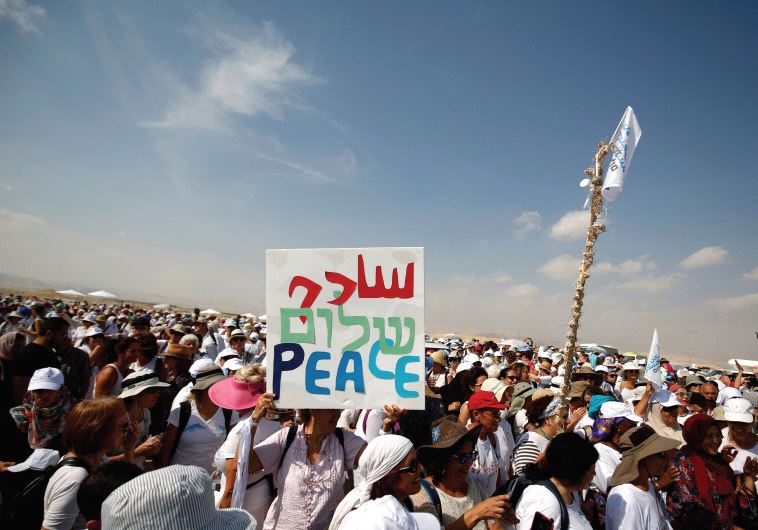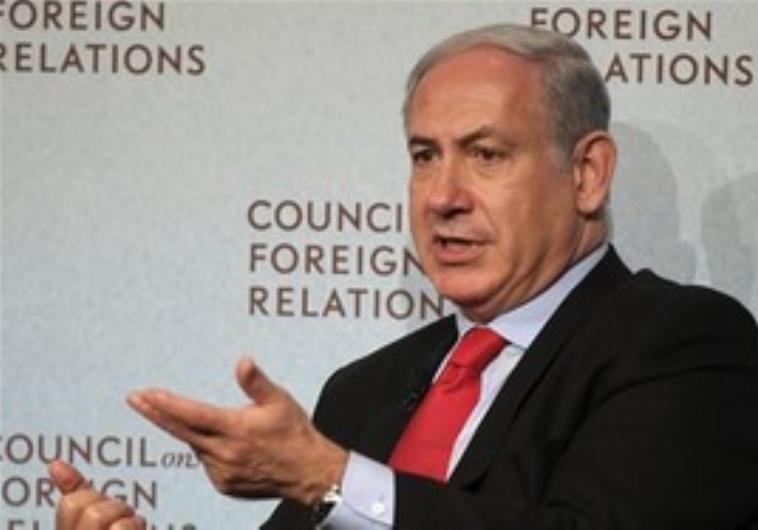Equality in a democratic society must be the main pillar on which the state is built. Citizens’ rights are not determined by their politics, but by virtue of being citizens in the same state.
Coalition negotiations have begun and the most likely outcome is what is called “a national unity government,” probably comprising Blue White, Likud and Yisrael Beytenu. The main obstacle to that outcome emerging immediately is the refusal of Prime Minister Benjamin Netanyahu to step down, to face his legal problems and to allow for new leadership to take over the Likud that would join the government. If Blue and White upholds its firm commitment to the public that it would not sit in a government under Netanyahu, there remains a chance of a rotation agreement between Gantz and Netanyahu as long as Gantz is the first in the rotation.
In that case, Netanyahu would have one or two years to clear himself of criminal charges before being allowed to take control of the government. Netanyahu should honor a commitment that he made to the public several years ago that a prime minister should not serve for more than two terms. Perhaps Gantz as prime minister will turn that into law. In any case, we need to be healed from the past decade of Netanyahu’s rule which has brought incitement against the Palestinian Arab citizens of Israel, against the Left, against human rights groups and peace organizations and even liberal American Jews and organizations that represent them, such as J-Street.
If the so-called national unity government is formed as described above (and as Avigdor Liberman who holds the swing votes dictates), the Joint Arab List, the Democratic Camp, the two haredi (ultra-Orthodox) parties and the right-wing religious party Yamina will not be included in the government. If this is to be the government that will be established, in order to actually heal the wounds of division fostered by Netanyahu and brought to the extremes by two elections campaigns, it is essential that it be founded on guidelines and bylaws which demonstrate the commitment to heal the divides and to rein in extremism and incitement and to earnestly build a truly shared society based on equality and inclusion.
The two sectors of the Israeli population that would be most unrepresented in this kind of government are the Arab citizens of Israel and the haredim. It would be very helpful to begin with if there were haredi and Arab members of the government, even if they are not from the haredi and Arab political parties. These communities should be represented in every Israeli government. It is also essential that there be a high representation of Israel’s majority women population as well which are under-represented in the leadership of the political parties.
EQUALITY IN a democratic society must be the main pillar on which the state is built. Citizens’ rights are not determined by their political positions, their religion or ethnicity, but by virtue of them being citizens in the same state. The most underdeveloped sector of Israeli society is the Arab sector, representing 20% of the citizens of the state. Deep under-development, which has occurred for many decades, must be reversed and as almost every economist in Israel will testify. This is essential for Israel to continue to grow and prosper. Inclusion is the first key to ending discrimination.
The statistics of a sharp increase in Arab participation in hi-tech in Israel demonstrates the possibilities. This is also noted in the growing number of Arab students in the Technion-Israel Institute of Technology, and particularly noteworthy is the high number of young Arab women among the growing Arab student population. These are good trends and must be supported and advanced.
We also need to see a socio-economic network that protects the most vulnerable and weakest parts of the Israeli public; social and affordable housing; intensive physical planning, especially for the Arab sector; increased investments in education in the weakest communities; and upgrading health services all around the country, particularly in the periphery regions where life expectancy is considerably less than in the center of the country. Violent crime in the Arab sector needs to be tackled head-on with the keenest of intentions to remove this untreated epidemic that has continued for too long.
The best chances for expanding Israel’s economy and bringing about real economic growth is by including all of Israel’s citizens in sharing the fruits of success. Increasing haredi and Arab participation in the upper-scale job market is possible if educational opportunities are created by direct government intervention. Emphasis must be placed on investing a lot more in education, and this should be a high priority for the new government. The two groups with the highest rate of unemployment in Israel are Arab women and haredi men.
This issue needs to be tackled by ensuring a core curriculum of education for all and by advancing opportunities for haredi and Arab young citizens to volunteer in civil service as an alternative to military service. That would enable the graduates of those programs to enter higher education for free and teach them skills that will assist them later in life.
NEW LEADERSHIP and new government in Israel should also enable the improvement of relations with Jordan and Egypt. This can best be achieved by renewing political dialogue with the Palestinian leadership in the West Bank and in coordination with them, advancing programs to end the economic siege on Gaza. Even without a full renewal of a peace process with the Palestinians, the
Israeli government has enormous power to improve the life of Palestinians to help change their attitudes toward peace with Israel.
I don’t have great expectations for the next Israeli government to sincerely advance peace, but I do expect the government to remove obstacles placed by Israel to Palestinian economic growth. The long-term Netanyahu policy of ensuring Palestinian poverty must come to an end. I do expect the new government to cease wasting money building more settlements and expanding existing settlements in the heart of the Palestinian populated areas of the West Bank. All settlement building should stop entirely, but that is highly unlikely. The freezing of building east of the separation barrier will enable the government to transfer that money to investments for planning and building in the areas of the Arab communities, and more building in haredi areas as well.
And since I am dealing with recommendations for the new government, I would strongly recommend that having such a large government coalition might actually enable the reduction of size of the government and the consolidation of many unnecessary and redundant ministries. My proposal for reducing the size of government is to move a lot of ministries into an enlarged Economic Ministry, making each of the former ministries into a department: agriculture, tourism, industry and trade, energy and water, transportation, periphery development, Negev and Galilee, housing, science and technology and regional cooperation could all be departments within one ministry.
This would save an enormous amount of money and make coordination of government policy much more coherent. The Internal Security Ministry should be returned to the Interior Ministry together with Immigration Absorption Ministry. The Diaspora Ministry should be moved back to the Foreign Ministry. The Strategic Affairs Ministry and the Intelligence Ministry should be shut down entirely. They were never necessary. The Education Ministry should be strengthened with the Culture and Sport Ministry returning there. The Environment Ministry should be strengthened because that will be one of the most important ministries in every government in the world.
Let’s all hope that we have a new and better Israeli government soon.


